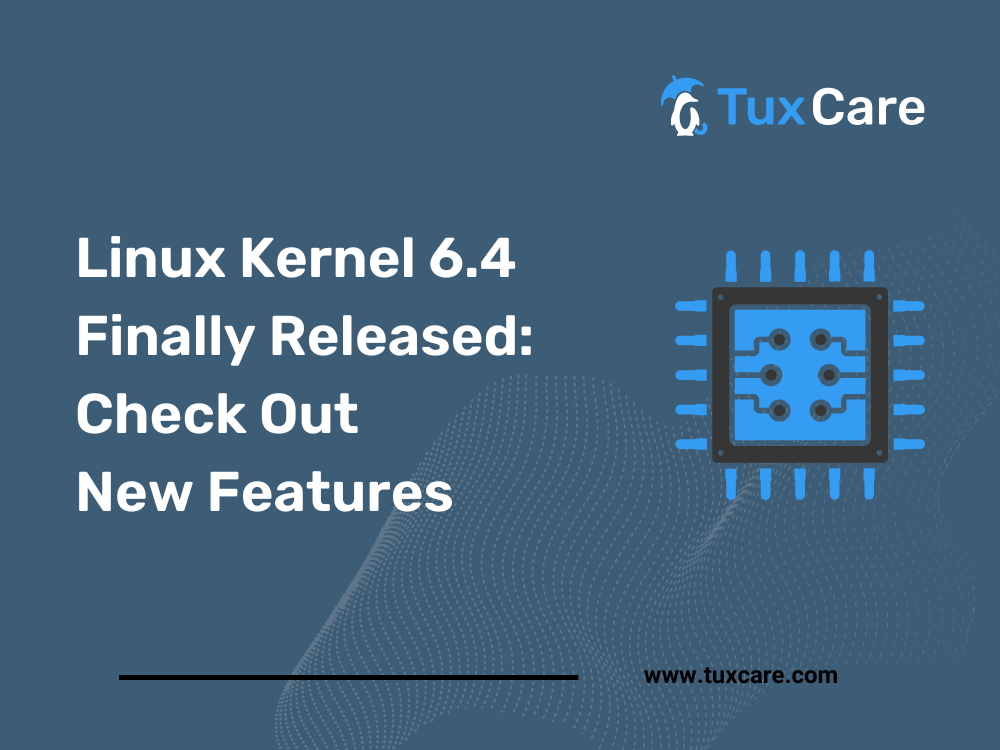Linux Kernel 6.4 Finally Released: Check Out New Features
As we know, Linux Kernel 6.4 has been released last week on June 25, 2023. This latest version arrived almost two months after the previous release, Linux kernel 6.3. This release highlights Intel LAM support, initial Apple M2 support, additional Rust code, AMD-guided autonomous mode, and other hardware updates.
New Features and Updates in Linux Kernel 6.4
Initial Apple M2 Support
Linux Kernel 6.4 now includes initial support for Apple’s M2 SoC and devices, such as MacBook Air, MacBook Pro, and Mac Mini systems. While the support is mostly similar to that of the Apple M1, there are a few exceptions. For instance, the mainline version of Linux does not yet have functional display output for the Apple M2 Mac Mini. Additionally, the keyboard and trackpad support for the new Apple laptops is not yet operational in this code, and there are a few other limitations.
Other SoC updates and changes for ARM architecture include:
- StarFive JH7110 SoC support
- Qualcomm IPQ5332 and IPQ9574 WiFi 7 networking SoCs
- Helio X10 SoC
- Oxford Semiconductor OX810/OX820
- New Allwinner f1c200s boards
- AM625 BeaglePlay industrial single-board computer
AMD Guided Autonomous Mode
The Guided Autonomous Mode patches were first released by AMD Linux engineers in December, and they have been refining them over the following months to ensure compatibility with the mainline kernel. This new mode of operation for the AMD P-State driver works alongside the existing “passive” and the AMD P-State EPP modes that were first introduced in Linux 6.3.
Subsequently, it delegates the responsibility of selecting an operating frequency within the specified range to the platform firmware in an autonomous manner. The scaling governor of the operating system can determine the minimum and maximum frequencies or performance levels utilizing specific registers thanks to the Guided Autonomous Mode for AMD. As a result, it gives the platform firmware the freedom to choose an operating system from among those given in an autonomous way.
AMD Ryzen CPUs, in particular AMD EPYC servers, should experience improved performance and power efficiency with the introduction of the AMD Guided Autonomous Mode. This increase is especially apparent when the platform firmware is better equipped to choose the appropriate CPU frequency scaling.
Storage and File Systems
In Linux 6.4, the EROFS file system introduces sub-page block support, which proves especially beneficial in the AArch64 domain where larger pages are frequently encountered. This enhancement allows for improved efficiency and performance in such scenarios.
Linux 6.4 brings performance improvements in the form of a revamped data structure utilized in the EXT4 file system. Specifically, the linked list used for tracking extents involved in inode pre-allocation has been replaced by a more efficient red-black tree in the multi-block allocator. This enhancement significantly enhances EXT4’s performance when dealing with workloads that entail a high volume of random allocating writes, as well as streamlines the allocation process and optimizes resource utilization.
Apart from performance optimizations and folio conversion in EXT4, the upcoming Linux 6.4 kernel version brings significant enhancements to the Btrfs and Flash-Friendly File-System (F2FS) drivers.
The Btrfs updates for the Linux 6.4 introduce notable improvements in directory logging performance. By implementing a change that avoids iterating over items and reduces locking contention during directory logging, the Btrfs driver achieves a remarkable 4x reduction in fsync time.
More Rust Code Updates
Furthermore, Linux 6.4 introduces new Rust code that brings several improvements to the kernel. For instance, this new pin-init API enables the safe initialization of pinned data structures, thereby reducing the reliance on “unsafe” Rust code. This API also provides stable addresses for data structures and contributes to improved safety within the kernel. Moreover, the pin-init API will serve as a foundation for upcoming Rust abstractions in Linux.
The Rust code in Linux 6.4 also includes improvements to other models, such as the sync module, new ioctl module, and uAPI crates.
Other Hardware Support
- Intel Lunar Lake HD audio support
- A new Firewire / IEEE-1394 maintainer
- AMD Soundwire support
- Apple M1/M2 keyboard backlight support
- Sensor monitoring support for 100+ more ASUS desktop motherboards
- Apple HID driver quirks
Final Words
As you can see, there have been a lot of new features and improvements made in Linux kernel 6.4. You can either manually install the new kernel version or wait some time for your distribution to provide a kernel update.
Recently, multiple security vulnerabilities have been found in the Linux kernel, ranging from medium to high severity scores. It is crucial to address these vulnerabilities quickly to ensure system protection against potential DoS attacks and unauthorized root access. An effective solution for Linux kernel patching is TuxCare’s KernelCare Enterprise which streamlines automated security patching without the need for system restarts or downtime. For detailed insights into Linux live patching, please refer to this comprehensive guide.
The sources for this article include a story from Phoronix.



 Documentation
Documentation Login
Login



